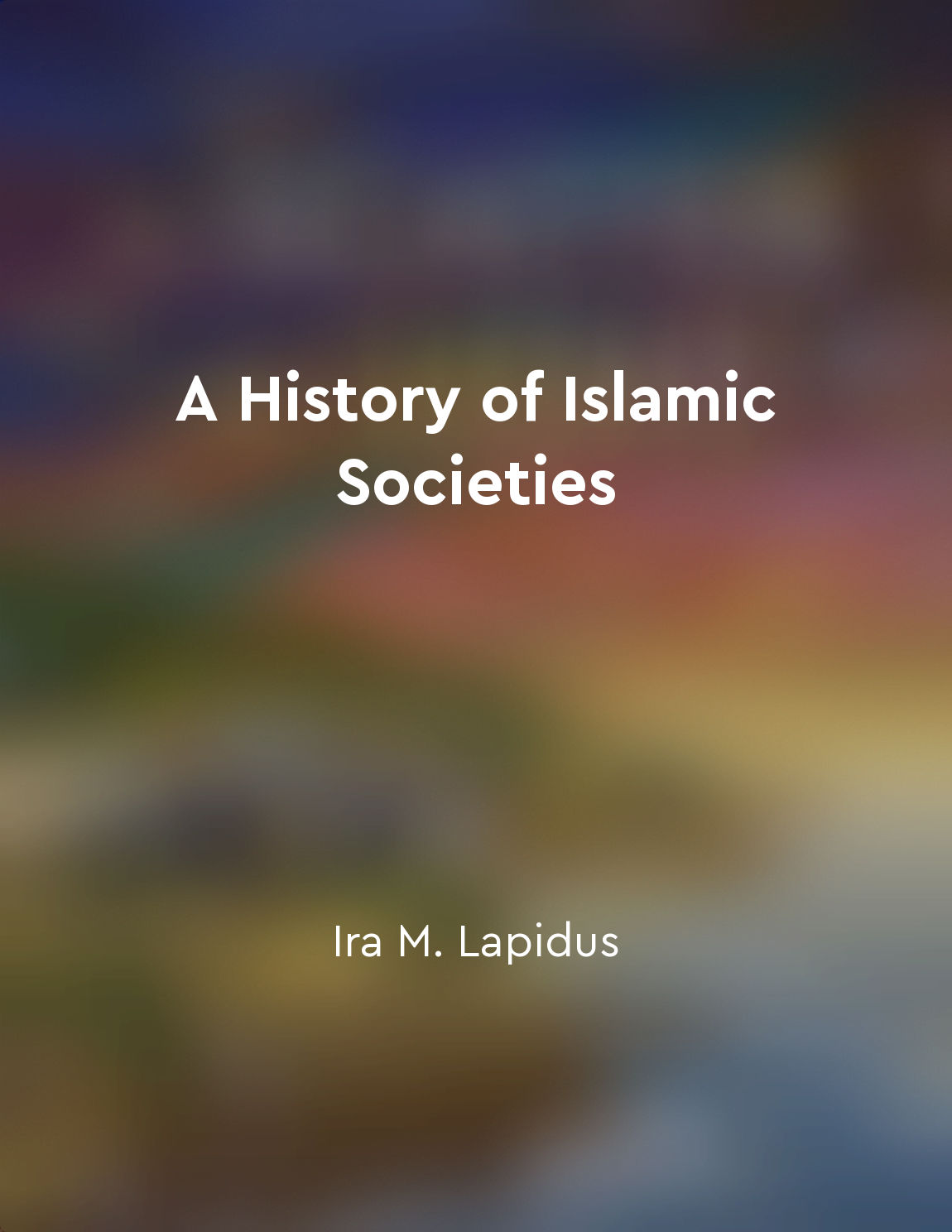Trade played a crucial role in the development of Islamic societies from "summary" of A History of Islamic Societies by Ira M. Lapidus
Trade was a pivotal factor in the growth and expansion of Islamic societies. It not only facilitated economic development but also played a significant role in shaping the cultural and social fabric of these societies. The geographical location of many Islamic lands, situated at the crossroads of major trade routes, allowed for the exchange of goods, ideas, and technologies with various regions of the world. The Islamic world was a hub of trade, connecting Europe, Asia, and Africa. The expansion of Islamic empires, such as the Umayyad and Abbasid Caliphates, facilitated trade by providing a stable and secure environment for merchants to conduct business. The establishment of bazaars, caravanserais, and trading centers further promoted commercial activities and fostered economic growth. The development of a sophisticated financial system, including the use of credit instruments such as bills of exchange and letters of credit, enabled merchants to conduct lon...Similar Posts
Trust is essential for societal progress
Trust is the foundation upon which progress is built. Without trust, societies cannot function efficiently. When individuals tr...
Chinese dynasties expanded their influence
The Silk Roads were crucial for the growth and expansion of Chinese dynasties over the centuries. By controlling these ancient ...
The complexity of human relationships
Human relationships are intricate and convoluted webs that weave themselves through the fabric of our lives, often defying simp...
Silk Roads connected civilizations for centuries
The Silk Roads are more than just a network of trade routes. They are a symbol of connectivity and interaction among different ...
The Renaissance sparked artistic and intellectual growth
During the Renaissance, a period of great artistic and intellectual activity, the world saw a remarkable flourishing of creativ...

